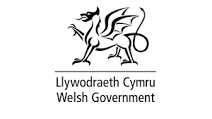HISTORIC PRESS RELEASE : Government welcomes Business-University Collaboration Review [December 2003]
The press release issued by HM Treasury on 4 December 2003.
Increased collaboration between business and university research departments will bring significant economic benefits to the UK, according to an independent report published by the Government today. But concerted action by business, universities, and government will be required in order to grasp the opportunities for the UK economy.
The Lambert Review, commissioned by HM Treasury, the Department for Education and Skills and the Department for Trade and Industry in November 2002, makes a series of recommendations aimed at smoothing out the path between Britain’s strong science base and the business community. They include:
- a greater role for the Regional Development Agencies in facilitating knowledge transfer in their regions;
- a new funding stream for business-relevant research, along with increased and improved “third stream” funding for knowledge transfer;
- Universities to develop a code of governance and to demonstrate good management and strong performance in return for a lighter regulatory touch from Government and the Funding Councils
- development of model contracts and a protocol for intellectual property (IP) to speed-up IP negotiations;
- encouraging new forms of formal and informal networks between business people and academics, including the establishment of a business-led R&D employers’ forum; and
- Universities to provide more information on student employability, and businesses to take a greater role in influencing university courses and curricular.
Richard Lambert, who is a member of the Bank of England’s Monetary Policy Committee, concludes that the biggest single challenge lies in boosting the demand for research from business, rather in increasing the supply of ideas and services from universities. However, he suggests that there are reasons for hoping that business investment in research will strengthen in the future, and the Review cites examples of a wide range of companies that have profited from working alongside academic researchers.
Presenting the report to the Government today, Richard Lambert commented:
“I am very positive about the economic potential which business in the UK can harness through developing stronger collaboration with universities. I am also clear that realising this potential will require concerted action by universities and business, with support from Government. My recommendations pose a challenge to all those engaged in this increasingly important area of public policy.”
Welcoming the report on behalf of Government, the Chancellor of the Exchequer Gordon Brown said:
“At their best, businesses and universities in the UK produce world-class results and can build world-beating partnerships, helping to foster productivity growth throughout the British economy. Richard Lambert’s report celebrates success in this field and identifies how as a country we could capitalise on this, building on rising public investment in the university research base. As Richard Lambert suggests, ambitious businesses need universities to meet many of their future technology and skills needs, and regional development agencies should help foster university-business links. He also suggests a strong case for a share of university research to be driven by the needs of business. In response a centrepiece of our next budget and spending review will be government playing its part in helping universities and business face up to these new challenges – together we must enable our centres of excellence to succeed in the next wave of science and be at the heart of Britain’s future economic success.”
Patricia Hewitt, Secretary of State for Trade and Industry, added:
“Scientific excellence is at the heart of a competitive economy. We have an outstanding track record of scientific achievement in our universities and British companies are benefiting from this research. But we need to make a better connection between the science base and industry. Innovative products, services and ways of doing business are crucial for the UK in today’s global economy. The forthcoming DTI Innovation Report will set out the Government’s next steps in meeting the challenge of turning invented in the UK into made in the UK.”
Charles Clarke, Secretary of State for Education and Skills, said:
“Our universities are a major national economic asset. The UK’s university research base continues to perform strongly, and is now underpinned by significant real increases since 1997 in public investment. We must ensure that this investment pays off, and that universities can continue to deliver the research and skills which the economy demands. Richard Lambert’s report provides an invaluable assessment of what can be achieved by well-run universities engaging purposefully with business, to their mutual benefit. We will seek to support such good practice in taking forward the Government’s current reforms of higher education in England.”



